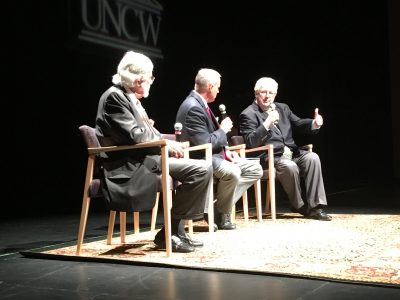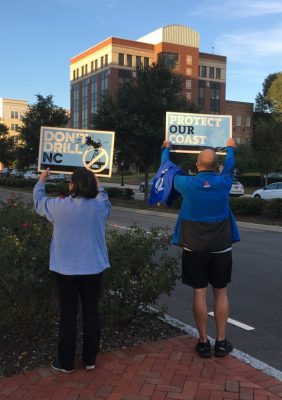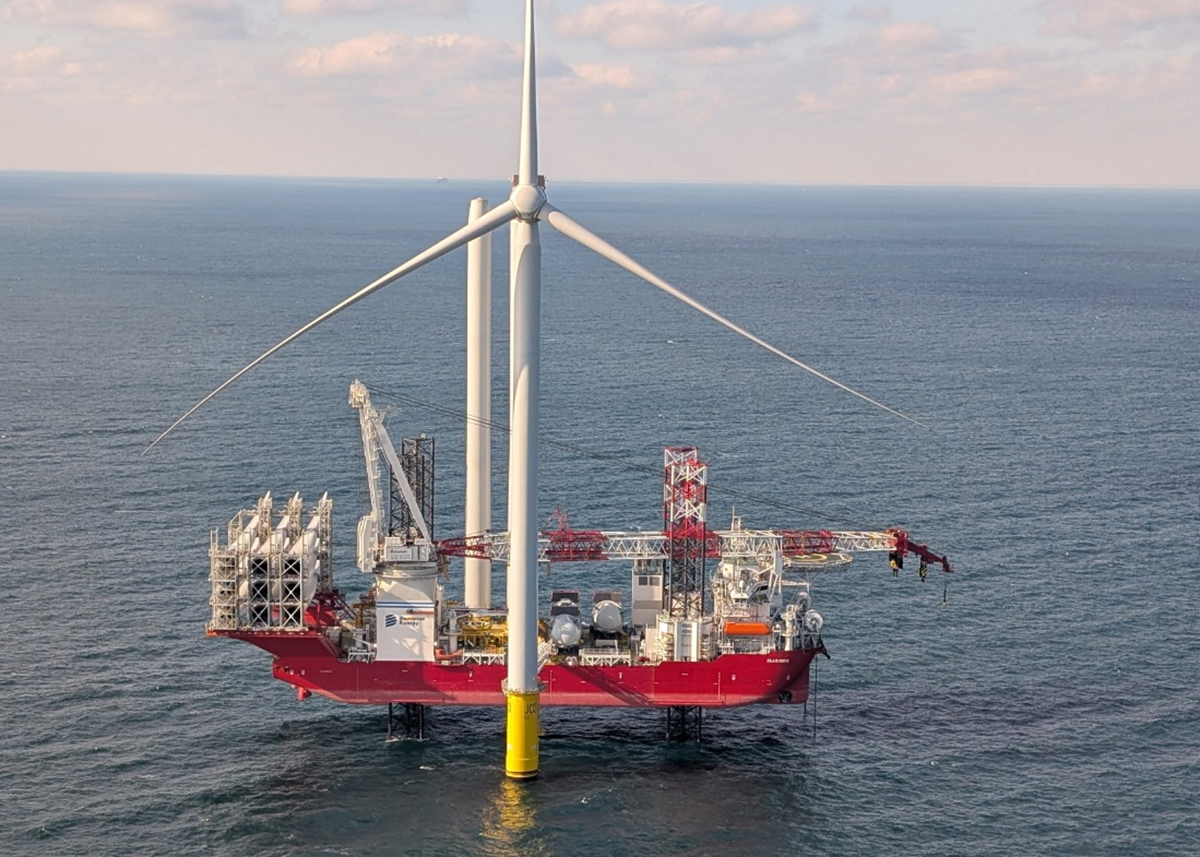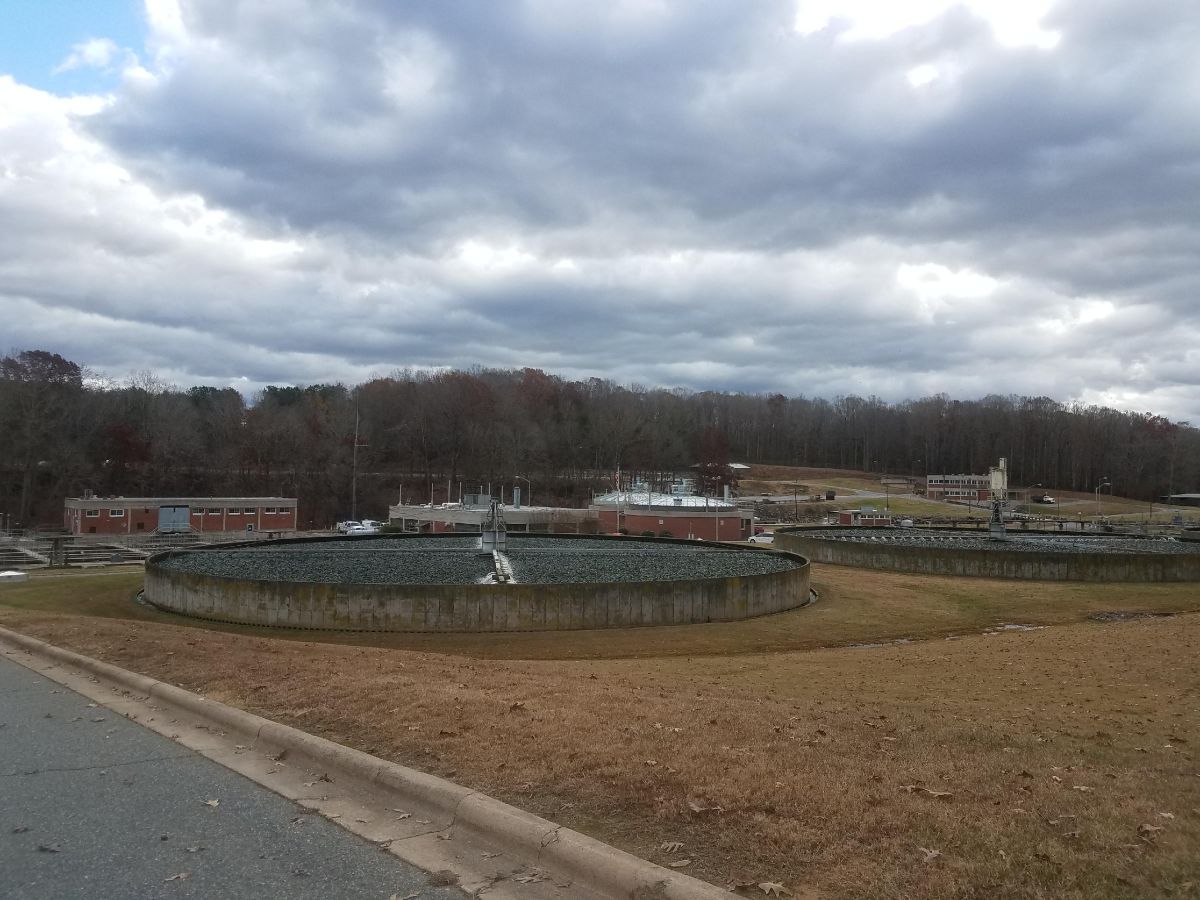WILMINGTON – Although ostensibly about offshore drilling, two speakers at a public forum held here Tuesday presented different views of the ocean itself.

For Jean-Michel Cousteau, environmentalist and son of legendary explorer Jacques Cousteau, the ocean is something that connects all humans. And for John Hofmeister, former president of Shell Oil Co. and founder of Citizens for Affordable Energy, the ocean is a natural resource that should be mapped to better understand where – and how many – oil deposits are underneath.
Supporter Spotlight
“To Drill or Not To Drill?” was the inaugural event hosted by The Public Square, a collaborative civic effort to educate locals about important issues. An estimated 950 people filled the lower level of the Wilson Center at Cape Fear Community College to hear the speakers who used their lifetimes of experience to discuss offshore drilling.
“Every time you drink water, you drink the ocean,” Cousteau said. “It is a part of all of us.”
Cousteau is the founder of the Ocean Futures Society, a nonprofit conservation and education organization that is meant to give a voice to the ocean. In his presentation, he said that there is still much we don’t know about the ocean.
“We’ve made a lot of mistakes, and we are just starting to understand the consequences of those mistakes,” he said, mentioning the effects of human activity on plants, animals and the climate. “We have to be sure to do everything we can to stop using the world’s oceans as a universal sewer.”
Citing the intense energy demands of the U.S. and the rest of the world, Hofmeister said that society shouldn’t remain unaware of what oil deposits are under the sea, including off North Carolina’s coast.
Supporter Spotlight
“We owe it to ourselves to explore what’s there, to better understand this resource,” Hofmeister said.
For decades, offshore drilling has been off-limits on the East Coast, largely because of environmental concerns and infamous oil industry accidents like 1989’s Exxon Valdez and at the Deepwater Horizon in 2010. Earlier this year, though, the Trump administration moved to expand offshore oil and gas drilling.
Those who support such efforts point to benefits such as greater energy independence for the country and more jobs for the coastal communities.
Gov. Roy Cooper has already stated his opposition to offshore drilling for North Carolina. And while some coastal county boards, such as Carteret and Brunswick, have passed resolutions in favor of offshore energy exploration, many coastal communities oppose it because of potential negative effects on tourism and fishing, which are vital to the coastal economy.
Both speakers at the forum discussed the Deepwater Horizon disaster, which resulted in almost 5 million barrels of oil being released into the Gulf of Mexico. Cousteau said he has seen the effects on marine life, such as dolphins. Hofmeister criticized the use of dispersants, which he said made the situation worse. While there are risks associated with the extraction of oil, he said, the lessons learned should be used to develop better practices in the industry.
“Every single aspect of our modern lives relies on energy. We need more, not less,” Hofmeister said. “We have to know what’s there. We, as a society, can’t remain ignorant. We have to pursue every possible source. In the future, it will remain critical to the economic well-being of society.”
Hofmeister acknowledged that the exploration of offshore oil resources would likely take at least a decade. The search will also be a costly endeavor. Shell Oil Co., for example, spent $7 billion on an exploratory well in the Arctic, and later abandoned the project. Cousteau argued that a better use of that money would be investing in sustainable and renewable energy sources, such as wind, solar and possibly harnessing the power of ocean currents.
“There is a point when there will be no more oil left,” Cousteau said. “What happens then?”
Hofmeister disputed the notion that there have been adequate advances in renewable energy to meet the world’s energy demands.
“Time is of the essence,” he said. “We need to think in terms of time and need, for the immediate term, near term and long term.”

Both speakers addressed the risks associated with seismic exploration, which is used to determine the best locations for test wells. Seismic technology in marine environments is controversial because of its negative effects on whales, dolphins and fish. Cousteau said that the seismic blasts can interrupt communications between migrating whales, which takes place over hundreds of miles. Hofmeister agreed that the process can be damaging to marine life.
“We are fully aware of the potential negative impacts,” Hofmeister said, adding that many concerns can be addressed in the environmental studies that must be completed before any of the exploration and drilling efforts begin.
“If we are to pursue this, we must take the time to do it right. But there are also trade-offs that have to be made. We have to make those decisions,” Hofmeister said.
Cousteau described the variety of ocean-related issues he’s seen and been a part of during his 75 years of marine exploration and scuba diving, including the problem of plastics in the ocean and the increased intensity of coastal storms. But, he said he has an optimistic vision of society’s ability to do better.
“We can work together. Every one of use breathes the same air. There are no politics here. We are talking about the future of our planet,” Cousteau said. “If you protect the ocean, you protect yourself.”
News anchor Jon Evans of WECT-TV moderated the event with the stated goal that every person there would learn something about the offshore drilling issue.
The North Carolina Coastal Federation helped underwrite the forum.
The Public Square, a collaboration between Cape Fear Community College, University of North Carolina Wilmington and Cape Fear Realtors, was founded to educate and foster civil discourse on issues with local ramifications. The group plans to offer another program next spring.







